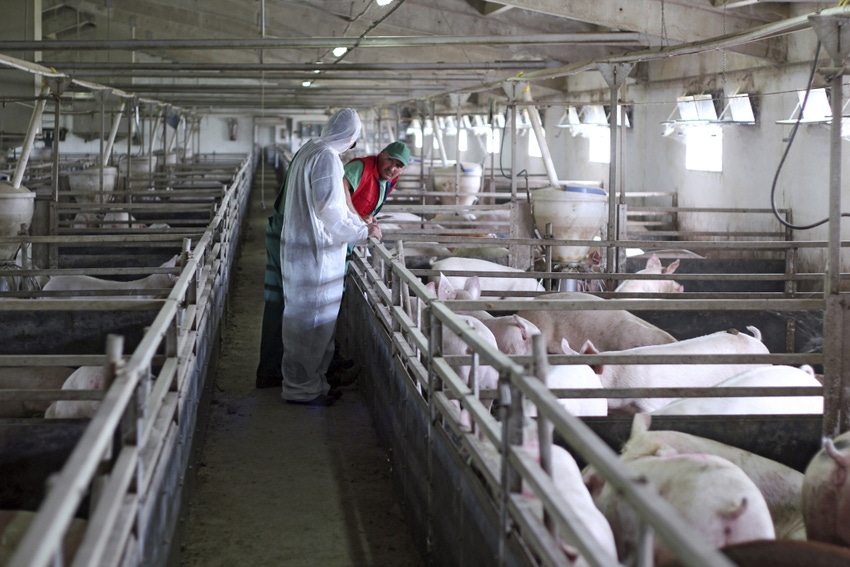K-State chosen to lead global animal health effort
Dustin Pendell named head of the Americas region of Collaborating Center for the Economics of Animal Health.
June 12, 2023

A Kansas State University agricultural economist has been selected to lead a five-year project to develop decision-making tools and improve communication on the economic impacts of animal disease, ultimately improving the health of those animals.
Dustin Pendell, a professor in K-State's department of agricultural economics, was named head of the Americas region of the Collaborating Center for the Economics of Animal Health. The project is supported by the World Organization for Animal Health, or WOAH, which has headquarters in Paris, France.
WOAH — similar in purpose to that of the World Health Organization, which preserves and promotes human health — approved the creation of the center during its 90th General Assembly in late May. WOAH has 183 member countries, 33 of which are in the Americas region.
"Our thought process is that we can start to work together across these 33 countries in the Americas region to develop a set of consistent methods and tools that everyone can use to estimate the economic impacts of animal health," Pendell said. "Then we can take that knowledge that we generate and disseminate that information back to the decision-makers, whether that be animal health officials, producers or anybody throughout the supply chain, so they can make better management decisions."
The Collaborating Center for the Economics of Animal Health-Americas centers its operations at K-State's Manhattan campus, though there are no physical buildings representing the group. It will involve partners at the University of Sao Paulo, University of Brasilia, Universidad Nacional Autonoma de Mexico and Washington State University.
The center will focus its effort on animal health related to terrestrial livestock — animals that live primarily on land — and aquaculture.
"As an economist, I will focus my work in that area, but this center is much more than economics," Pendell said. "It will take multiple disciplines, such as veterinarians, economists, epidemiologists, engineers and more, to make this a success."
Pendell said he anticipates the center's work will build upon recent global efforts such as the Global Burden of Animal Diseases (GBADs) and Global Framework for the Progressive Control of Transboundary Animal Diseases, a joint effort of WOAH and the Food and Agriculture Organization of the United Nations.
"The GBADs team has been working together for the past five years or so, during which time we've been developing methods on how we estimate the burden of animal health," Pendell said.
Pendell said knowing the burden of animal diseases across the world will not only assist governments and animal health officials invest appropriately in combatting those diseases but will help everyone across the livestock and meat supply chain.
"My hope is that we can provide decision-makers with the information such that they will be better able to optimally allocate their limited resources," he said.
Pendell said his vision for the CCEAH-Americas is rooted in K-State's land-grant mission.
"As an agricultural economist at a land-grant university, my job is to provide unbiased research to our stakeholders, such that they can make a better-informed decisions," he said. "We want business management decisions to be based on more than just a gut feeling. My vision for this center incorporates the land-grant philosophy and gets the research into the hands of the stakeholders, both here at home and around the world."
You May Also Like



